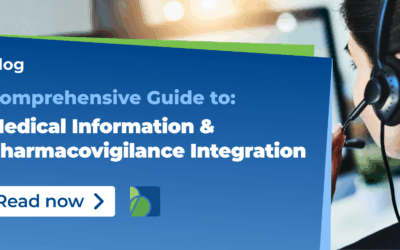Well-defined & quick start-up processes for clinical trials in the Baltics
One of the main reasons why you should consider running a clinical trial in Baltic states is a quick clinical trial start-up process. Furthermore, Baltic states are in EU since 2004 and follows EU requirements, ICH-GCP and Helsinki declaration for clinical trials. EU law is applicable in all three Baltic state countries, what means that EU standards are applied for Clinical trials in the Baltic states. Here are the main reasons why Baltic states have a quick clinical trial start-up process:
- Submission to EC and CA performed in parallel;
- There is no Local EC approval required, nor fully executed nor drafts contracts included in the submission package to EC/CA;
- There is no additional agency to which we should additionally submit the application after EC/CA approvals are in place;
- Cover letters, application forms, response to queries can be submitted in the English language;
- Legislation and the regulatory process is very similar to other EU countries;
- From the first submission till last approval it will take only 45-60 days;
- Contract execution 1-2 month usually done in parallel and executed by the time EC and CA approval granted;
- No import licenses are required to import medical products within the EU.
Highly professional & Experienced Staff in Clinical Trials in the Baltics
Currently, there are around 23 000 physicians and 45 000 nursing staff practising in the Baltic States. Doctors in the Baltic states are characterized as highly qualified professionals. Here are some additional details to know about the medical staff:
- Well-equipped and modern public hospitals and private clinics;
- Developed infrastructure for clinical trials;
- Short distances in all Baltic countries, which is a benefit to the patients and to the study monitors, sites are easily accessible with short travel time;
- No language problems – all site staff are fluent in English and no translation of study manuals is required;
- Site staff are qualified and committed medical professionals, experienced in performing clinical trials, highly motivated, driven by scientific interest and inherent with high-quality clinical trial data;
- The opportunity to bring medical advances to their patients offers exclusive professional prestige.
Great track record of patient recruitment and retention
Enrolling patients in clinical trials can be difficult, many clinical trial sites are struggling to reach patient enrolment goals. What’s is the advantage in the Baltic states?
- High level of physician’s trust and respect. The study conducted at the Lithuanian University of Health Sciences evaluated patients opinions on clinical trials. The study showed that over 90% of respondents trusted their physicians.
- Possibility to receive the newest treatment;
- Strong doctors and patients bond which strengthens patients compliance and retention in the clinical trial;
- Databases of patients are available;
- Patient referrals;
- Patients pre-screening.
High trust levels in physicians and close contacts with patients gives high chances to reach and enrol patients into a clinical trial in the Baltic states. Below you will find the main demographic data about all three countries.
[ngg src=”galleries” ids=”4″ display=”basic_thumbnail” override_thumbnail_settings=”1″ thumbnail_width=”950″ thumbnail_height=”350″ thumbnail_crop=”0″]
Ability to ensure high-quality, integral data
High-quality standards and medical education in the Baltic states offers highly trained physicians and well-equipped sites for conducting clinical trials. Here are the key things to know more:
- Most of the physicians have completed their postgraduate studies, speciality qualifications and have academical degrees;
- Experience has shown that investigator sites reliably provide high-quality data in the required timeframe;
- Trained and experienced site staff, well settled-up site management and principal investigators oversights show perfect abilities to ensure the high quality at sites;
- Routinely performed audits and inspections urges the sites to be audit and inspection ready.
Cost of clinical trials in the Baltics
Compared with the US and West Europe countries the cost of running a clinical trial is very competitive. Furthermore, University hospitals are driven by scientific interest and accessibility to the advanced treatment for the patients. Physicians are seeking professional development and recognition and clinical trials give a possibility to meet other investigators and to share ideas and potentially plan further collaborations.
Study start-up timelines, well-established environment, experienced and motivated physicians, willing and compliant patients are the key elements which make the Baltic states desired location to perform clinical trials. Steadily increasing attraction shows proofs of this region potential and possibilities to run high-quality clinical trials.
References:
1. Health data.
2. Country health profiles.









